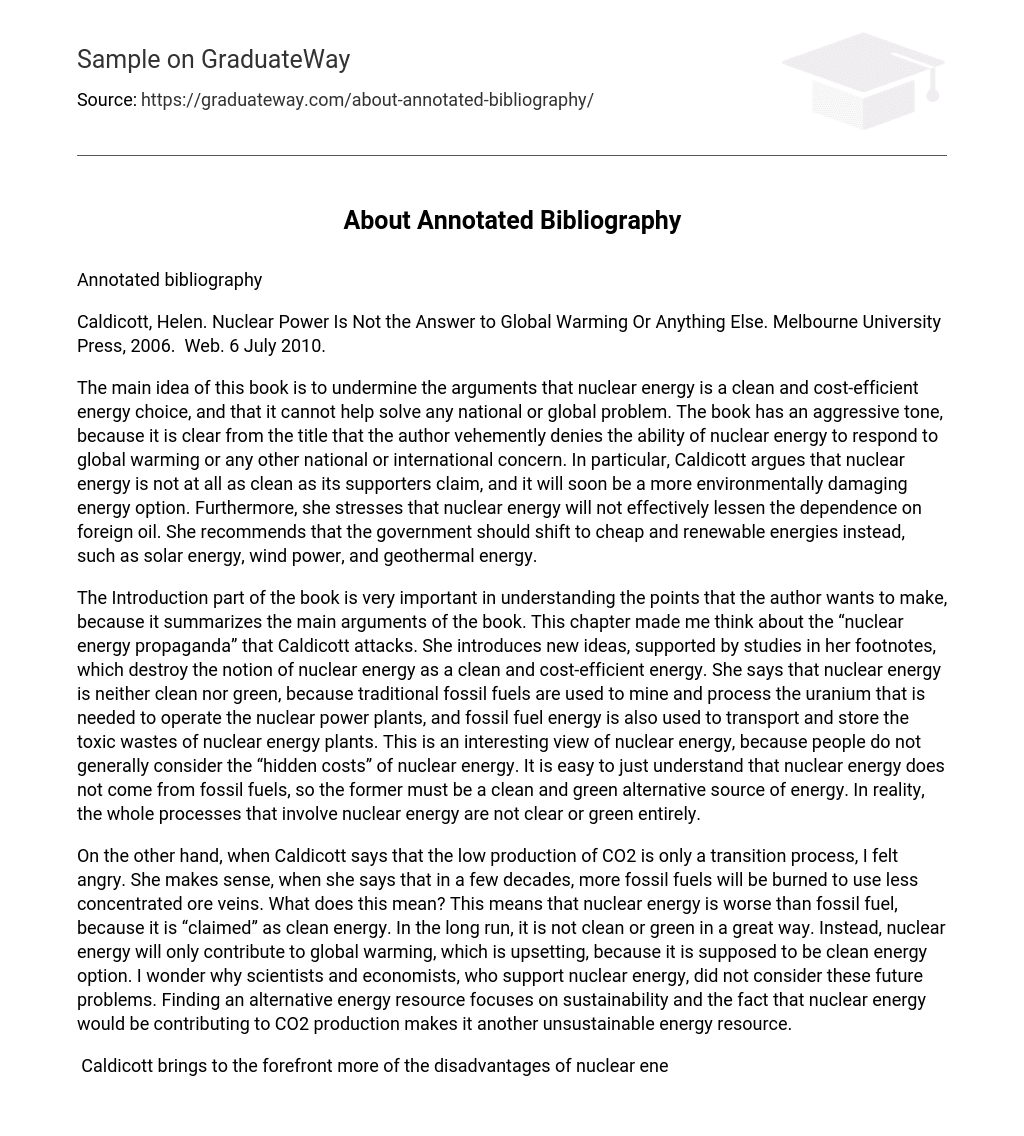The main idea of this book is to undermine the arguments that nuclear energy is a clean and cost-efficient energy choice, and that it cannot help solve any national or global problem. The book has an aggressive tone, because it is clear from the title that the author vehemently denies the ability of nuclear energy to respond to global warming or any other national or international concern.
In particular, Caldicott argues that nuclear energy is not at all as clean as its supporters claim, and it will soon be a more environmentally damaging energy option. Furthermore, she stresses that nuclear energy will not effectively lessen the dependence on foreign oil. She recommends that the government should shift to cheap and renewable energies instead, such as solar energy, wind power, and geothermal energy.
The Introduction part of the book is very important in understanding the points that the author wants to make, because it summarizes the main arguments of the book. This chapter made me think about the “nuclear energy propaganda” that Caldicott attacks. She introduces new ideas, supported by studies in her footnotes, which destroy the notion of nuclear energy as a clean and cost-efficient energy. She says that nuclear energy is neither clean nor green, because traditional fossil fuels are used to mine and process the uranium that is needed to operate the nuclear power plants, and fossil fuel energy is also used to transport and store the toxic wastes of nuclear energy plants.
This is an interesting view of nuclear energy, because people do not generally consider the “hidden costs” of nuclear energy. It is easy to just understand that nuclear energy does not come from fossil fuels, so the former must be a clean and green alternative source of energy. In reality, the whole processes that involve nuclear energy are not clear or green entirely.
On the other hand, when Caldicott says that the low production of CO2 is only a transition process, I felt angry. She makes sense, when she says that in a few decades, more fossil fuels will be burned to use less concentrated ore veins. What does this mean? This means that nuclear energy is worse than fossil fuel, because it is “claimed” as clean energy.
In the long run, it is not clean or green in a great way. Instead, nuclear energy will only contribute to global warming, which is upsetting, because it is supposed to be clean energy option. I wonder why scientists and economists, who support nuclear energy, did not consider these future problems. Finding an alternative energy resource focuses on sustainability and the fact that nuclear energy would be contributing to CO2 production makes it another unsustainable energy resource.
Caldicott brings to the forefront more of the disadvantages of nuclear energy. I like the way she uses simple words to argue her points. She also uses evidence to back up her claims. I find her writing style easy to understand and she makes her points in a persuasive way. Finally, I also enjoyed reading the book, because Caldicott is a true supporter of sustainable alternative energy, since she exposes the “myths” about nuclear energy. I want to support writers, who try to balance the perspective on current energy options, so that the society and the government would be better informed about their energy resources and what they can do to create a workable and sustainable energy plan.





